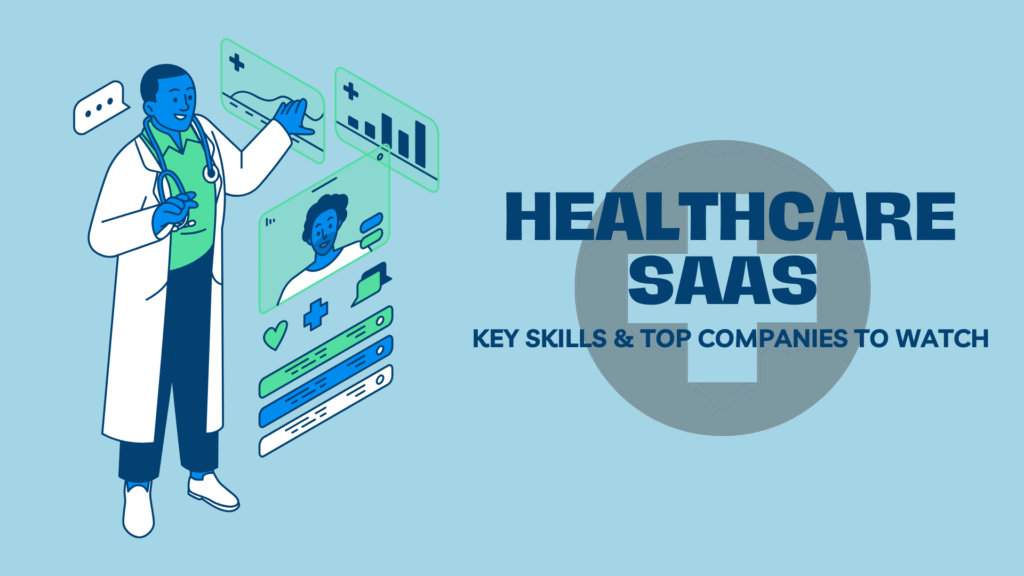
What Is Healthcare SaaS?
Healthcare SaaS delivers cloud-based software solutions that supply digital tools and infrastructure to healthcare organizations via internet connectivity. Healthcare SaaS platforms operate from remote data centers where they offer services through subscription-based models, enabling providers to utilize software functions across web browsers and mobile devices. Healthcare SaaS platforms deliver management of Electronic Health Records (EHRs) and telemedicine solutions, together with medical billing capabilities and additional functions.
SaaS platforms deliver essential adaptability, which enables healthcare organizations to enhance operational efficiency and cut down expenses. According to MarketsandMarket, the global healthcare SaaS market will grow from $22.6 billion in 2023 to $72.3 billion by 2030 with a compound annual growth rate of 18.4%. Healthcare organizations now depend on digital health solutions to deliver better patient care and enhance operational performance.
Benefits of SaaS for Healthcare
The numerous advantages of SaaS motivate healthcare organizations to employ it when modernizing their medical systems. SaaS platforms provide cost savings as their subscription models eliminate expensive hardware and software acquisitions. Organizations can maintain predictable subscription costs and eliminate the need to handle their IT infrastructure through subscription-based services.
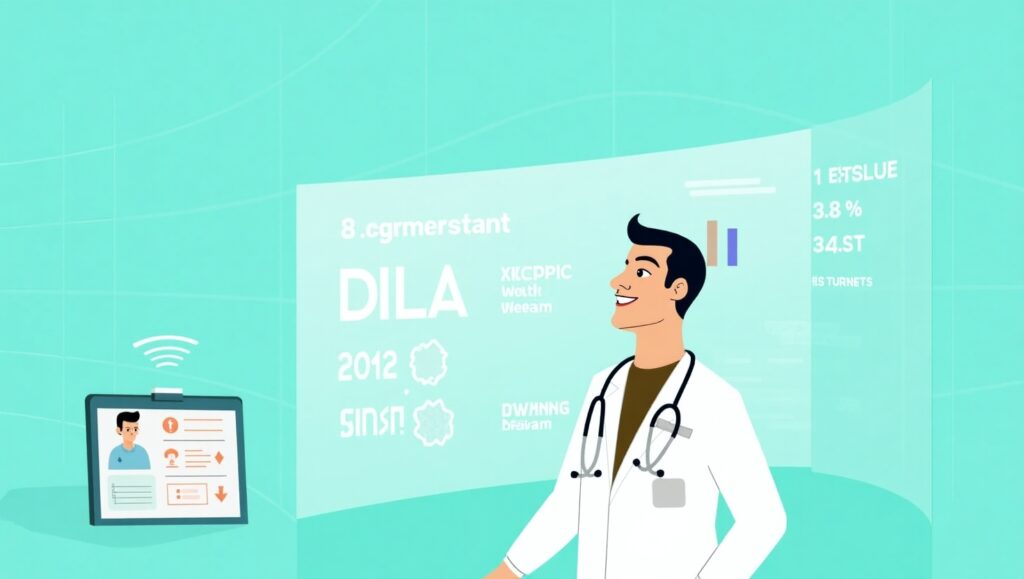
Gartner research shows that 70% of healthcare organizations have already moved to cloud-based solutions or intend to do so soon because SaaS delivers scalable infrastructure benefits and cost savings. SaaS platform users experience operational efficiency benefits from saving 45% on IT costs while boosting productivity by 30%.
Common Use Cases in the Healthcare Industry
Healthcare SaaS solutions help to make healthcare delivery processes more efficient while improving both administrative and clinical operations. Healthcare SaaS platforms provide complete management tools for Electronic Health Records (EHRs) and telemedicine functionalities. Healthcare providers utilize Electronic Health Records (EHRs) as their main application through cloud-based systems that enable real-time updates and storage of patient records while maintaining constant provider access.
The adoption of telemedicine platforms by healthcare providers has increased as they use these platforms to conduct virtual consultations and monitor patients remotely. The 2023 McKinsey study shows that telemedicine usage expanded by 38% since the pandemic began, showing increased use of remote healthcare services.
| Use Case | Examples | Key Benefits |
| Electronic Health Records (EHR) | DrChrono, CareCloud | Real-time data access, reduced errors |
| Telemedicine | Teladoc, Phreesia | Convenient patient consultations, increased accessibility |
| Practice Management | CompuGroup Medical | Streamlined operations, improved patient flow |
| Medical Billing | Cerner, Epic Systems | Automated billing processes, reduced administrative burden |
How to Learn SaaS for Healthcare
Professionals who want to succeed in healthcare SaaS need both technical skills and healthcare industry insights. Professionals must gain knowledge of healthcare legal and regulatory frameworks, which include HIPAA compliance requirements. Understanding cloud computing and SaaS architecture enables professionals to grasp the processes involved in healthcare application development and maintenance.
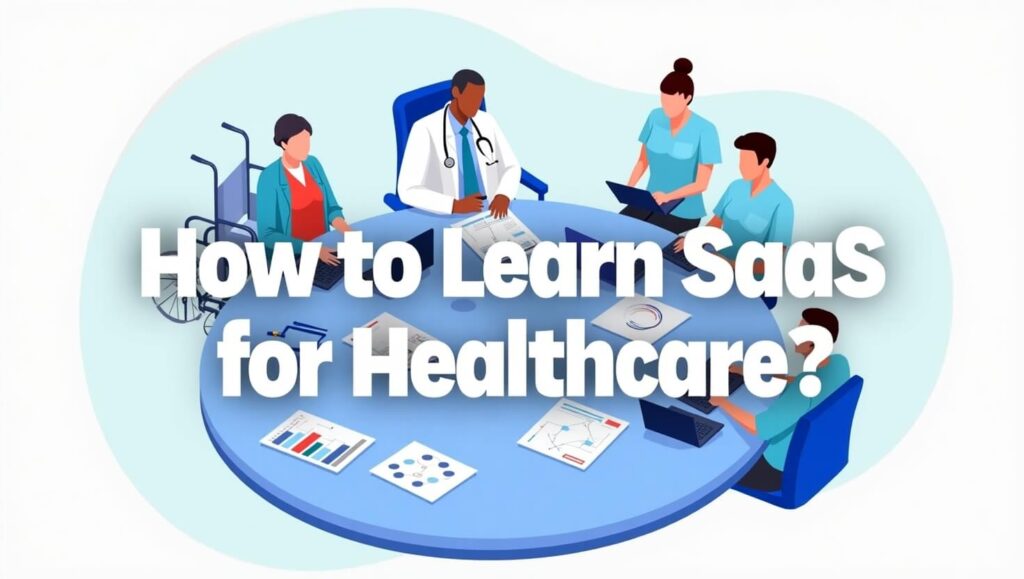
A variety of online platforms provide educational courses that teach cloud computing, along with SaaS development and healthcare IT principles. The courses teach important subjects, including cloud infrastructure and software integration, while emphasizing data security, which healthcare software professionals must master. Practical projects and sandbox testing environments serve as excellent methods to reinforce your knowledge.
Recommended Learning Paths and Resources
Students pursuing SaaS for healthcare should locate educational materials that teach basic principles in addition to offering advanced training sessions. Multiple educational platforms deliver specialized courses in SaaS development as well as cloud computing and healthcare IT. Introductory cloud technology courses build essential knowledge for newcomers, while advanced courses teach healthcare regulations and system integration.

The Certified HIPAA Professional (CHP) and AWS Certified Cloud Practitioner credentials demonstrate your knowledge to prospective employers and clients while boosting your professional profile. Participants gain valuable professional connections and learn about cutting-edge healthcare technologies through healthcare IT events and webinars.
Selling InfoSec-Compliant Healthcare SaaS
The management of sensitive patient data requires healthcare SaaS providers to prioritize information security. Software must adhere to HIPAA, GDPR, and HITECH regulations to fulfill necessary legal requirements. Healthcare organizations must prioritize security measures when selecting SaaS solutions to avoid significant financial losses and damage to their reputation from patient data breaches.
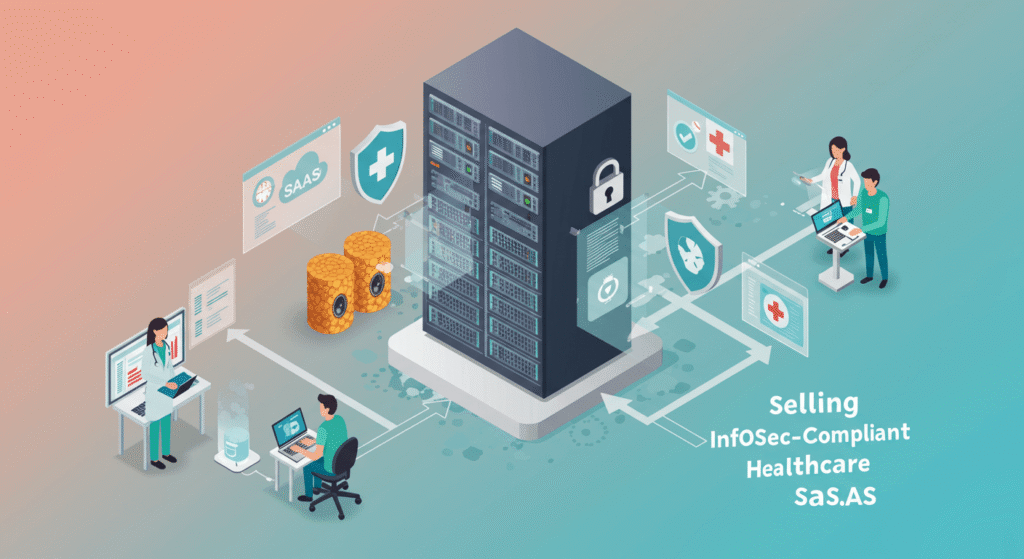
According to a 2021 Ponemon Institute study healthcare data breaches in the United States incur average costs of $9.23 million which exceeds the financial losses experienced in other industries. The data demonstrates why healthcare SaaS providers need strong security protocols and legal compliance.
Positioning Your SaaS Product for Compliance
SaaS products that want to satisfy compliance requirements need to deploy powerful security measures to protect patient data during its entire lifecycle. The system encrypts data securely during transmission and when stored to allow only authorized individuals access to sensitive information. The implementation of Role-Based Access Control (RBAC) protects systems by allowing access based on predefined organizational roles.
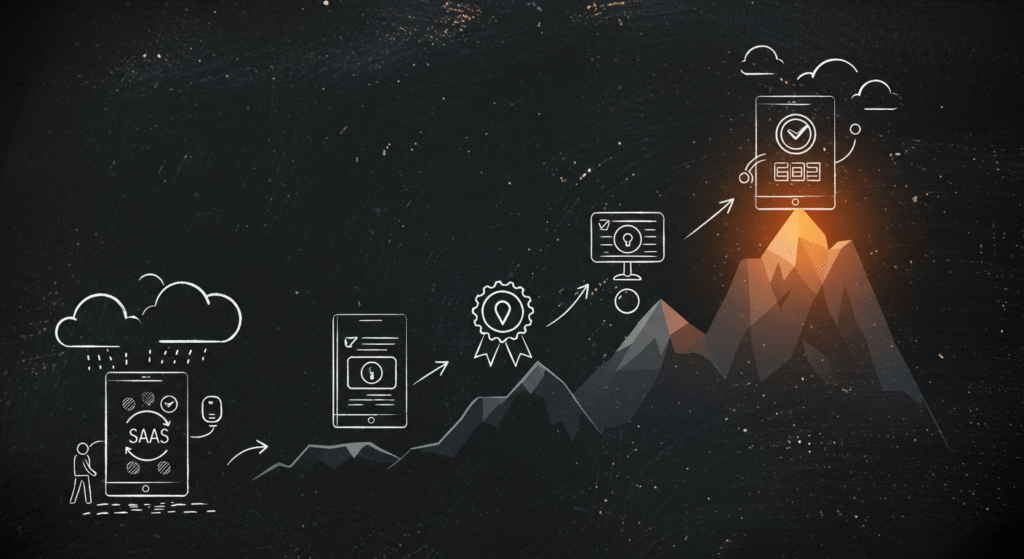
SaaS platforms need robust security protocols while also offering detailed audit logs to track each user action within the system. Third-party audits and certifications from organizations like SOC 2 or HITRUST provide validation of your product while building customer confidence in your platform’s security measures and compliance standards.
Sales Strategies for Regulated Healthcare Markets
Healthcare SaaS providers need to focus on information security because they handle sensitive patient information. Software must comply with HIPAA standards to meet legal requirements and it also needs to follow GDPR and HITECH regulations. Security protocols must be prioritized in SaaS selections by healthcare organizations to protect against unauthorized patient data access that can cause considerable financial harm and damage their reputation.

According to the 2021 Ponemon Institute study, healthcare data breaches averaged $9.23 million in the U.S. and surpassed financial losses experienced by other sectors. Healthcare SaaS providers must implement strong security measures and adhere to legal standards to protect sensitive patient data.
Top Healthcare SaaS Companies Powering the Future of Medical Software
Software-as-a-Service companies spearhead the healthcare industry’s rapid digital transformation through their revolutionary efforts. These companies build healthcare’s future through cloud-based platforms that enhance operational efficiency and patient care while meeting compliance standards. Industry leaders respond to the growing demand for digital health tools by creating new standards for medical software development.
Company Profiles
1. DrChrono
The DrChrono platform offers cloud solutions that enable healthcare organizations to control electronic health records and perform medical billing functions alongside telehealth service delivery. The platform offers adaptable features that enable healthcare providers to manage patient data and workflows using mobile devices. DrChrono maintains its top spot in the SaaS healthcare market by focusing on improving clinical workflow efficiency. The DrChrono platform extended its services to support 17,000 healthcare providers by 2022.
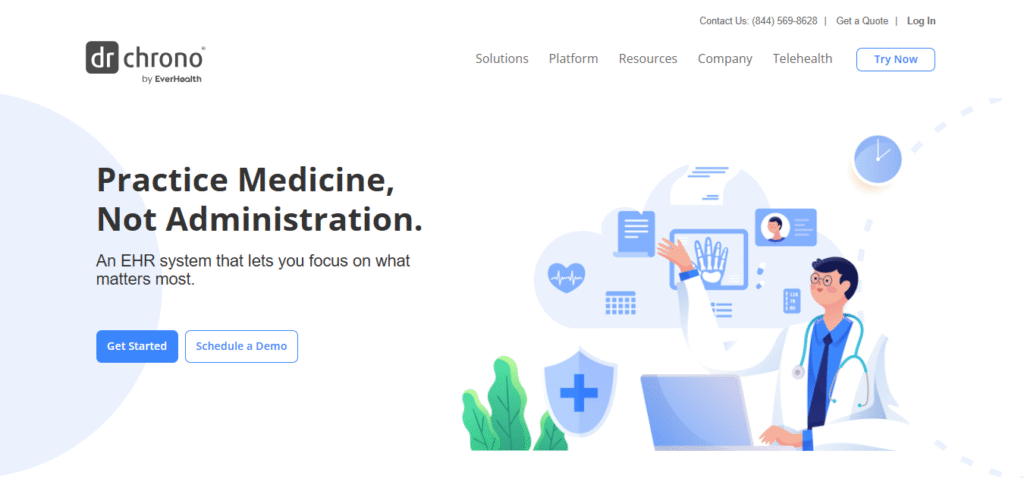
2. Teladoc Health
Teladoc Health leads the telemedicine industry by delivering virtual healthcare consultations and care solutions remotely. Through its platform millions of users receive real-time health consultations worldwide in different medical specialties. The telemedicine company Teladoc conducted more than 15 million virtual visits throughout 175 countries in 2022 which established its position as one of the biggest telemedicine platforms globally.
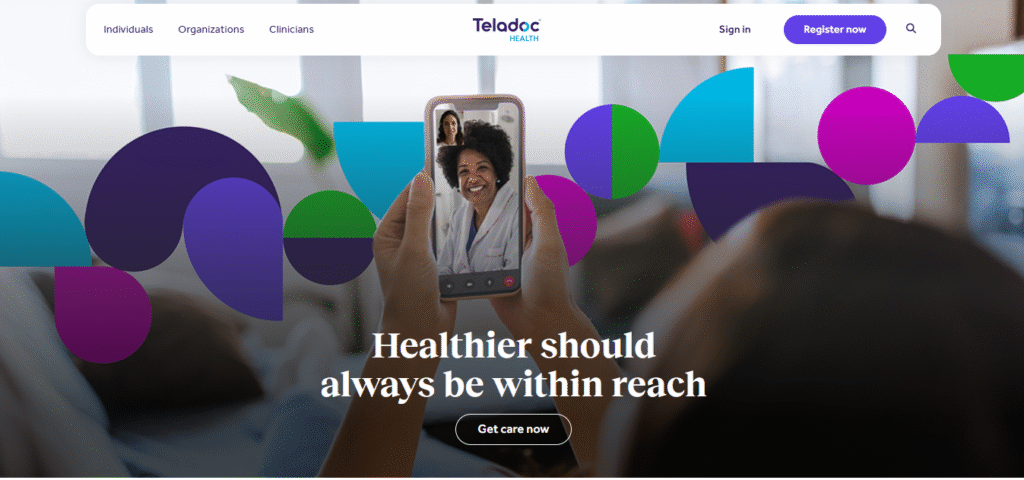
3. CareCloud
Practice management functions, together with revenue cycle management features, are integrated into CareCloud’s SaaS solutions. Healthcare providers can enhance patient care time by using CareCloud’s AI-powered tools to optimize operational processes and reduce administrative workloads. In 2023, healthcare practices reduced their administrative costs by 25% when they implemented CareCloud solutions.
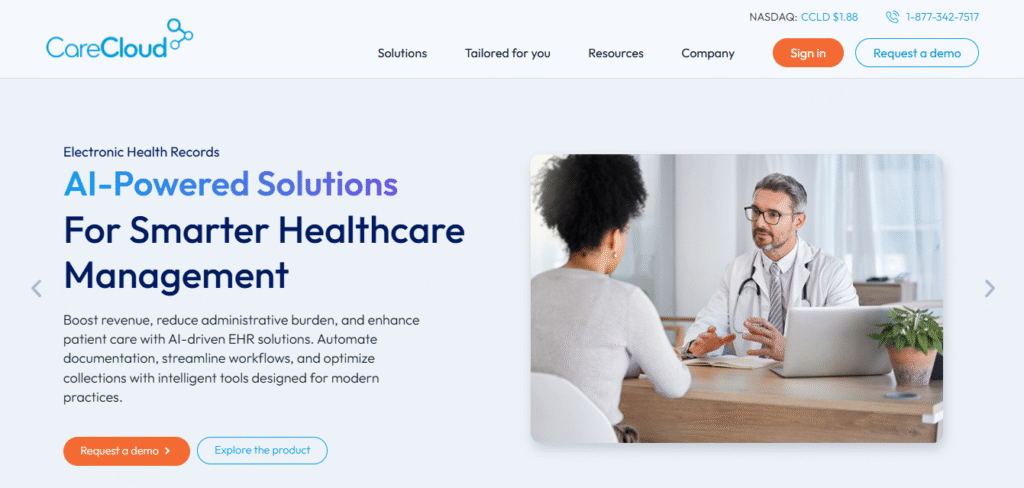
4. Phreesia
Phreesia delivers automated patient intake solutions that enable streamlined insurance verification with appointment scheduling. Their platform links with many EHR systems to ensure efficient workflows while delivering a superior patient experience. Phreesia partners with over 15,000 providers who benefit from improved patient engagement and faster wait times.
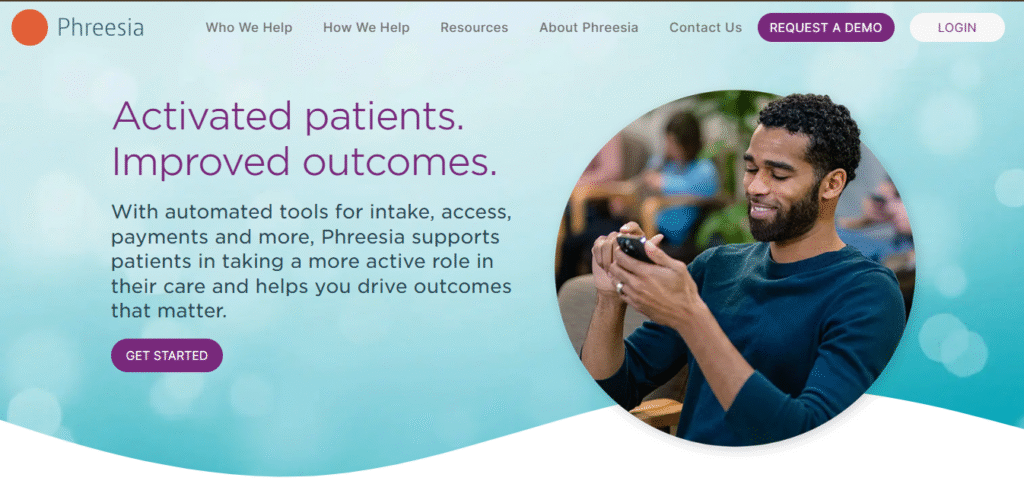
5. CompuGroup Medical
CompuGroup Medical offers a comprehensive selection of healthcare software that covers electronic health records (EHR), laboratory systems, and medical billing services. CGM operates in over 56 countries and delivers adaptable solutions to healthcare providers ranging from small practices to large hospitals. CGM announced that it provided services to more than 1.5 million healthcare professionals across the globe during 2022.
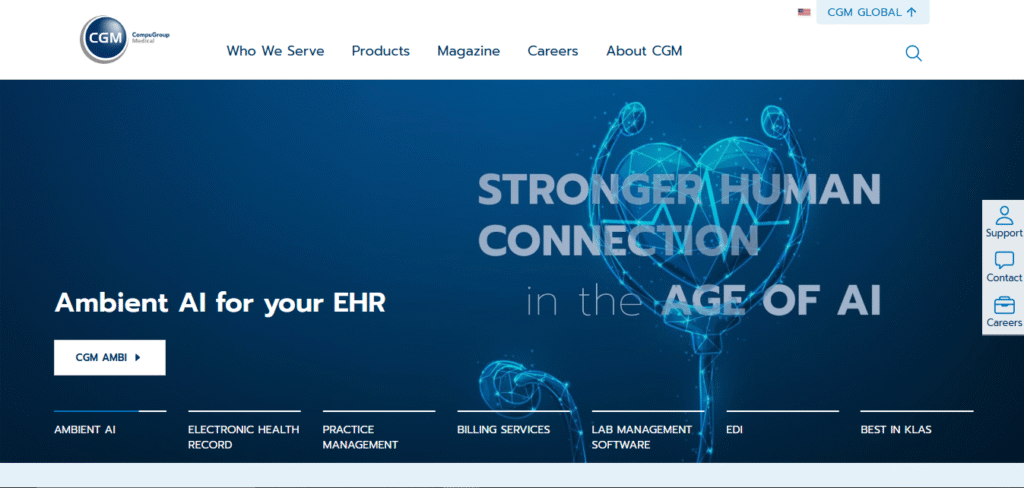
The Role of Backlinks and SEO in Healthcare SaaS Marketing
Organic traffic generation and visibility enhancement are vital benefits of SEO practices within the healthcare SaaS market competition landscape. Search engines receive signals from authoritative healthcare websites through backlinks, which indicate that your content possesses value and trustworthiness. Healthcare SaaS companies that secure high-quality backlinks will boost their search rankings while earning trust from users and search engines alike.
According to a 2023 study from Ahrefs, websites that possess high-quality backlinks originating from authoritative domains have a 2.5 times higher chance of appearing on Google’s first search page. The crowded healthcare market demands effective search visibility, which backlinks help achieve while boosting credibility.
How to Get Backlinks from Health Sites
- Guest Posting: Develop research papers or articles suitable for submission to recognized healthcare blogs or academic journals.
- Case Studies: Evaluate your SaaS platform performance in live healthcare settings through research and publish the findings.
- Industry Partnerships: Work together with medical institutions and health associations to establish backlinks by developing joint projects.
Conclusion: Is Healthcare SaaS the Future of Medicine?
SaaS solutions significantly drive the swift digital transformation of the healthcare industry. Healthcare SaaS organizations offer scalable systems with security features that enable health providers to deliver better care services while maintaining regulatory compliance. Future healthcare advancements will find their foundation in SaaS technology because the healthcare sector keeps adopting digital health solutions that promise to transform patient outcomes and global healthcare delivery systems.

